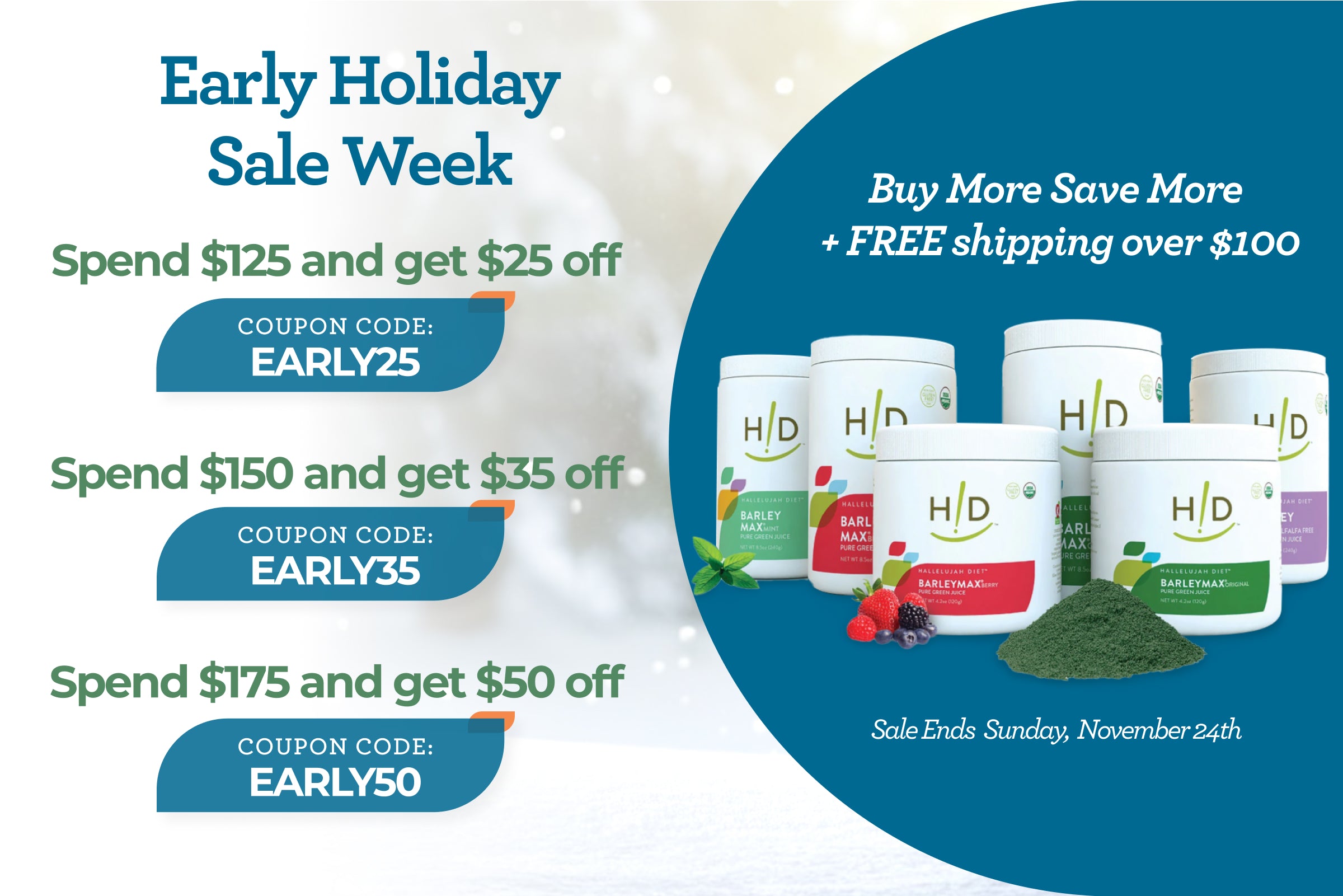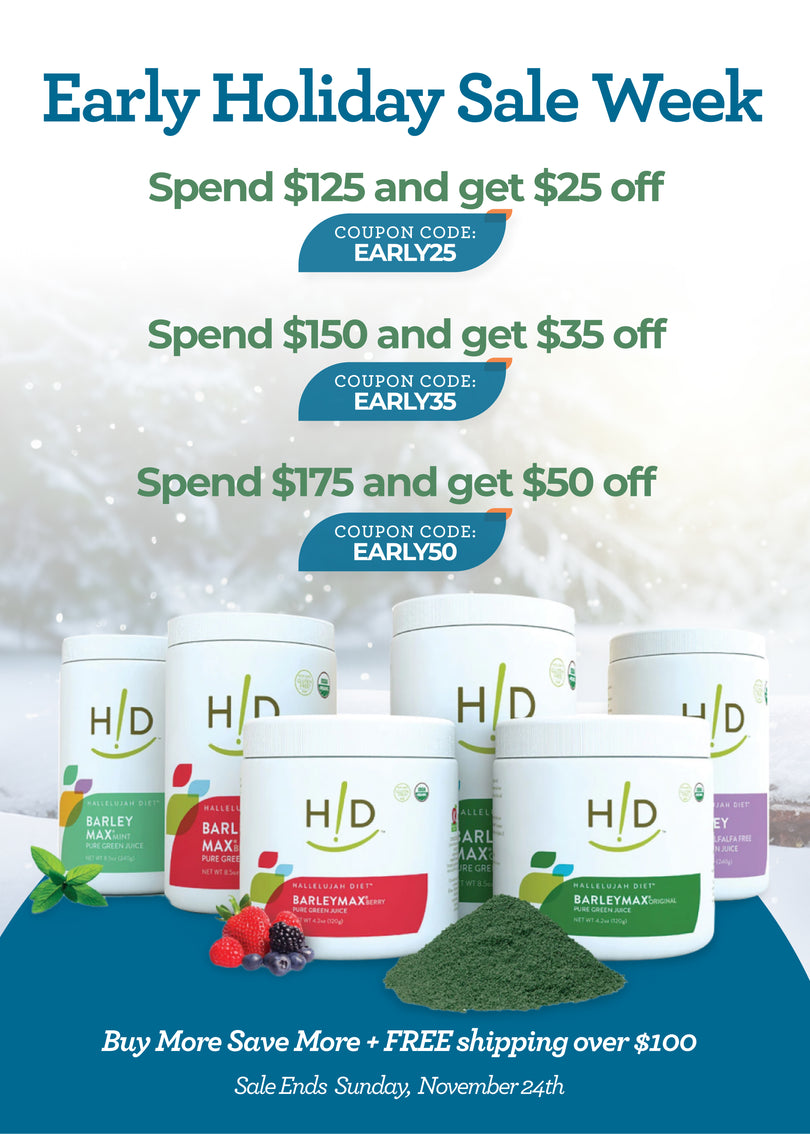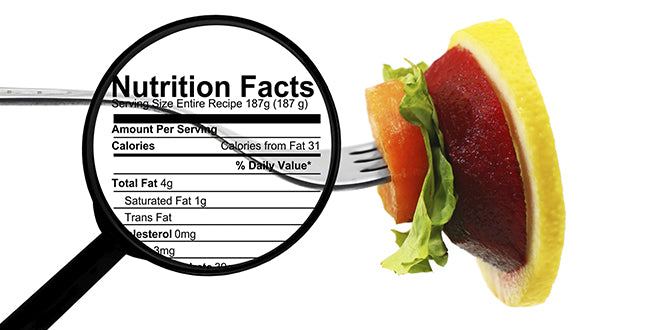What you put in your body—including essential supplements—means everything when it comes to vibrant health—well into old age.
It began in 1973 as “National Nutrition Week,” but the Academy of Nutrition and Dietetics moved to a “National Nutrition Month” in the year 2000 as a way to deliver nutrition education messages to the public while promoting the profession of dietetics. This year’s theme is Savor the Flavor of Eating Right. Like Hallelujah Diet, the Academy seeks to encourage everyone to enjoy food traditions and appreciate the pleasures of great flavors and experiences that food can add to our lives. “How, when, why and where we eat are just as important as what we eat.” This year the academy hopes to show how developing a mindful eating pattern that includes nutritious and flavorful foods, is the way to a healthy body and mind. Healthy eating can be tasty eating! To celebrate “National Nutrition Month,” we’ve put together a list of ten tips (five in this article and five more next week) to help you begin or continue your journey to a life of optimal health and well-being:-
Avoid Animal-Based Protein
Protein stands out as an essential nutrient primarily because of its high nitrogen content. It’s recommended that the average person (male and female) consumes about 0.8 grams of protein for each pound of body weight—or about 10% of total daily calories consumed by the average person. As the primary source of protein for most Americans, animal protein often pushes protein consumption into the 15%-25% range and, consequently, can result in an increased risk for cancer, heart disease, and other adverse affects on biological systems. Animal foods lack specific nutrients that are essential to preventing and fighting cancer and diseases:- Fiber
- Antioxidants
- Phytochemicals
- Folate
- Vitamin E
-
Maximize Consumption of Fruits and Vegetables
Fruits and vegetables are a major source of macronutrients including fiber and micronutrients such as minerals, vitamin C, thiamin, riboflavin, B-6, niacin, folate, vitamin A and vitamin E. Phytochemicals in fruits and vegetables like polyphenolics, carotenoids and glucosinolates have been linked to decreased risk of cancer and diseases. Fruits and vegetables can also be a great source of unrefined plant-based carbohydrates. Coming in a variety of colors, plant-based carbohydrates are packed with antioxidants, vitamins and minerals that protect against cancer, heart disease and many other chronic diseases. Eat the organic colors of the rainbow:- Red: strawberries, apples and tomatoes
- Orange: carrots, mango and oranges
- Yellow: bananas, squash and lemons
- Green: string beans, limes and leafy lettuce
- Blue/Purple: blueberries, plums and beets
-
Stay Away from Added Sugars
Sugar is a natural component of many healthy foods, but when sugar is added unnaturally to food, it is refined and loses water, fiber and all other healthy nutrients. According to a study by the Harvard School of Public Health, 70% of Americans consume almost three times more added sugar than the daily recommendation. At the proper level of intake, unrefined sugar provides the body with nutritional fuel, but people who eat high levels of refined sugar are shown to eat lower quantities of fiber, vitamins, minerals and protective nutrients. Excess consumption of sugar has been linked to many health problems and chronic diseases:- Liver damage
- Weight gain
- Metabolic dysfunction
- Increased uric acid
- Risk of heart disease
- Increased cancer cells
-
Limit Intake of Refined Salt
The human body requires a trace amount of the sodium contained in salt to conduct nerve impulses, contract and relax muscles and regulate the balance of water and minerals. In a 2009 review, The Preventable Causes of Death in the United States, excess salt intake was shown to lead to 102,000 premature preventable deaths each year. While excess consumption of salt is dangerous, the real health issues arise with refined salt. Refining salt removes 82 of the 84 minerals found in natural salt. Also, chemicals have been added to make the salt white and prevent it from absorbing moisture to allow it to flow from a salt shaker. Refined salt has been shown to accelerate the disease causing aspects of high blood pressure and inflammation. To avoid refined salt:- Avoid animal-based food
- Eliminate processed foods
- Maximize fruits and vegetables, especially organic
- Pay special attention to labels
sea salt has the ability to keep all bodily fluids, including the blood, in a balanced state. When a body exists in the state of equilibrium…the immune system will be strong, the metabolism will be healthy and bodily organs will be able to easily function.” -
Ensure Optimal Heart Health
Heart disease is the number one killer of Americans, but it’s avoidable through proper diet and exercise. The heart—quite literally—is at the center of correct bodily function. Perhaps the most important organ in the body, the heart pumps blood and oxygen to every tissue and extracts carbon dioxide and waste. Heart disease is caused by the thickening of fatty plaque buildup that clogs the artery walls and prevents essential blood flow to other parts of the body. Atherosclerosis is the most common form of the disease, which is caused by improper diet, lack of exercise, obesity and smoking. Caused by high levels of fat and sodium, high blood pressure, and high LDL “bad” cholesterol, heart disease can be warded off by committing to a heart healthy diet:- Organic Whole-Grains—Packed with antioxidants, phytoestrogens and phytosterols, whole grains are great sources of fiber that fight against heart disease.
- Beans—Also filled with heart healthy fiber, beans work in the body to remove LDL cholesterol.
- Nuts—Full of plant protein, vitamins, minerals and heart healthy monounsaturated fat, regular nut consumption has been shown to lower incidence of heart disease.
- Berries—With high levels of antioxidants, berries have been shown to increase HDL cholesterol and lower blood pressure.






